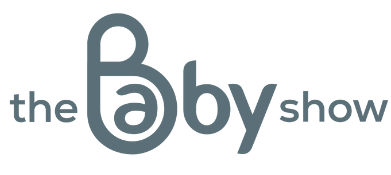Annabel Karmel, MBE Takes On Your Top Weaning Questions
)
Call to Action:
Looking for mealtime inspiration for your baby or toddler? Annabel’s award winning recipe app is packed with over 1000 simple and delicious ideas, PLUS new recipes every week.
Packed with expert weaning support, including Annabel’s #1 listen-along guide, it’s a kitchen essential for happy, healthy mealtimes. Visit the App Store or Google Play and start your FREE trial today!
Annabel Karmel, MBE Takes On
Your Top Weaning Questions
Weaning! That first furor into food is an exciting time for babies and parent folk. But stepping into solids - whether you are spoon feeding or baby-led weaning - can be a little daunting too.
It’s only natural to have lots of questions, so we’ve enlisted one of our favourite Baby Show experts, and No.1 children’s cookery author, Annabel Karmel, MBE to answer some of those biggest questions from parents.
When should I start weaning my baby?
Although the general rule for introducing solids is ‘around six months old’, a small number of babies will show signs of being ready a little before this time. As with most big milestones in parenthood, nothing is ever black and white, but there are some key indicators which can help you to tell when your baby is developmentally ready for weaning.
These indicators include being able to sit up independently and having good hand-to-eye coordination. You will also need to look out for signs that your baby has lost the tongue-thrust reflex, an intuitive reaction in young babies to push unfamiliar objects out of their mouth using their tongue. All babies develop at their own pace, but these signs will certainly help to reaffirm your gut feeling that your baby is ready to tackle solids. If you have any concerns, check with your health visitor or GP to make sure your baby is ready to tuck into solid foods.
How often do I introduce new food at the start of weaning?
Start by introducing a single new food each day; this way your baby can get used to the individual textures and flavours and learn to identify these. You can then start to combine foods and flavours once you’re both in the swing of things.
It can take up to 15 attempts for your baby to accept new tastes. Embrace the funny faces they make – this is just a baby exploring and experimenting.
How do I combine milk feeds with weaning?
At the start of weaning, your baby will only be having very small amounts of food (roughly 2-3 spoonfuls). Babies have tiny tummies and these initial tastes are about food exploration and mastering the art of eating, while the majority of their energy and nutrition will come from milk. As your baby progresses through their weaning journey, it’s likely they will begin to drink less milk as they eat more solid foods, and their milk feeds will naturally become more infrequent and shorter. However, your baby’s usual milk will remain the most essential dish on the menu, with around 500-700ml of breast milk needed each day up until their first birthday.
When should I introduce allergenic foods?
It is recommended that potential allergenic foods such as eggs or peanuts should be introduced from 6 months. In fact, for babies who don’t have parents or siblings with allergies, or who don’t have early onset eczema, start introducing allergenic foods the same way you would with any other food. By introducing these foods into their diet early on, it may help prevent allergies developing.
Of course, if you think your baby is at risk of developing a food allergy, it’s best to discuss with your GP or health visitor before introducing any allergen foods.
When and how often do I offer water?
From 6 months you should offer your baby a cup of water with every meal (not before, as it could fill up those tiny tummies). There are no specific guidelines on how much water to give your baby; as long as you have a cup on hand and offer water regularly, your baby should let you know when they want to drink.
Don’t worry if your baby doesn’t drink too much at first as they should be receiving most of their hydration from breast milk or formula until at least 12 months. Remember that getting used to the new taste and art of drinking from a cup is another skill they must master on their weaning journey!
